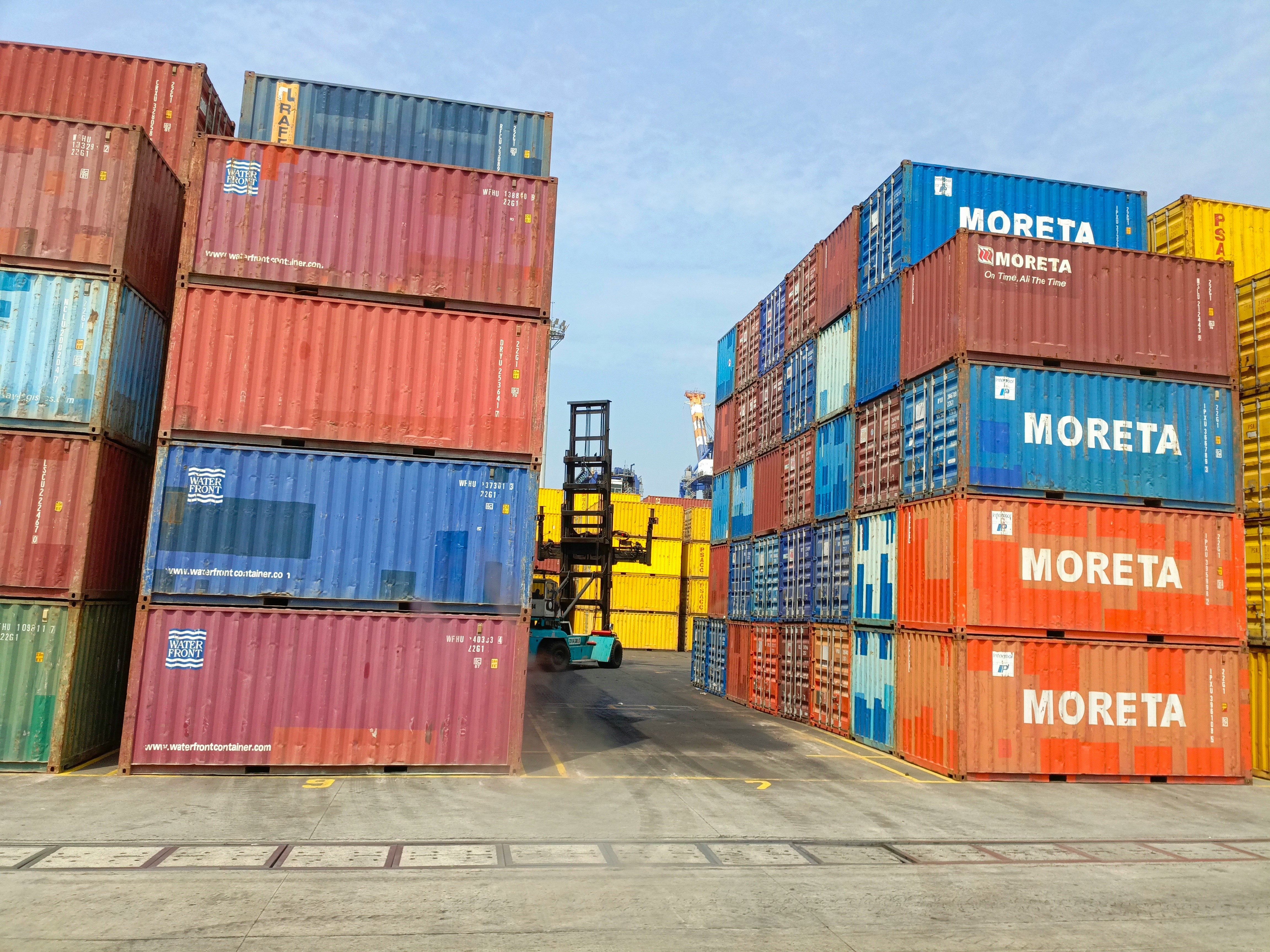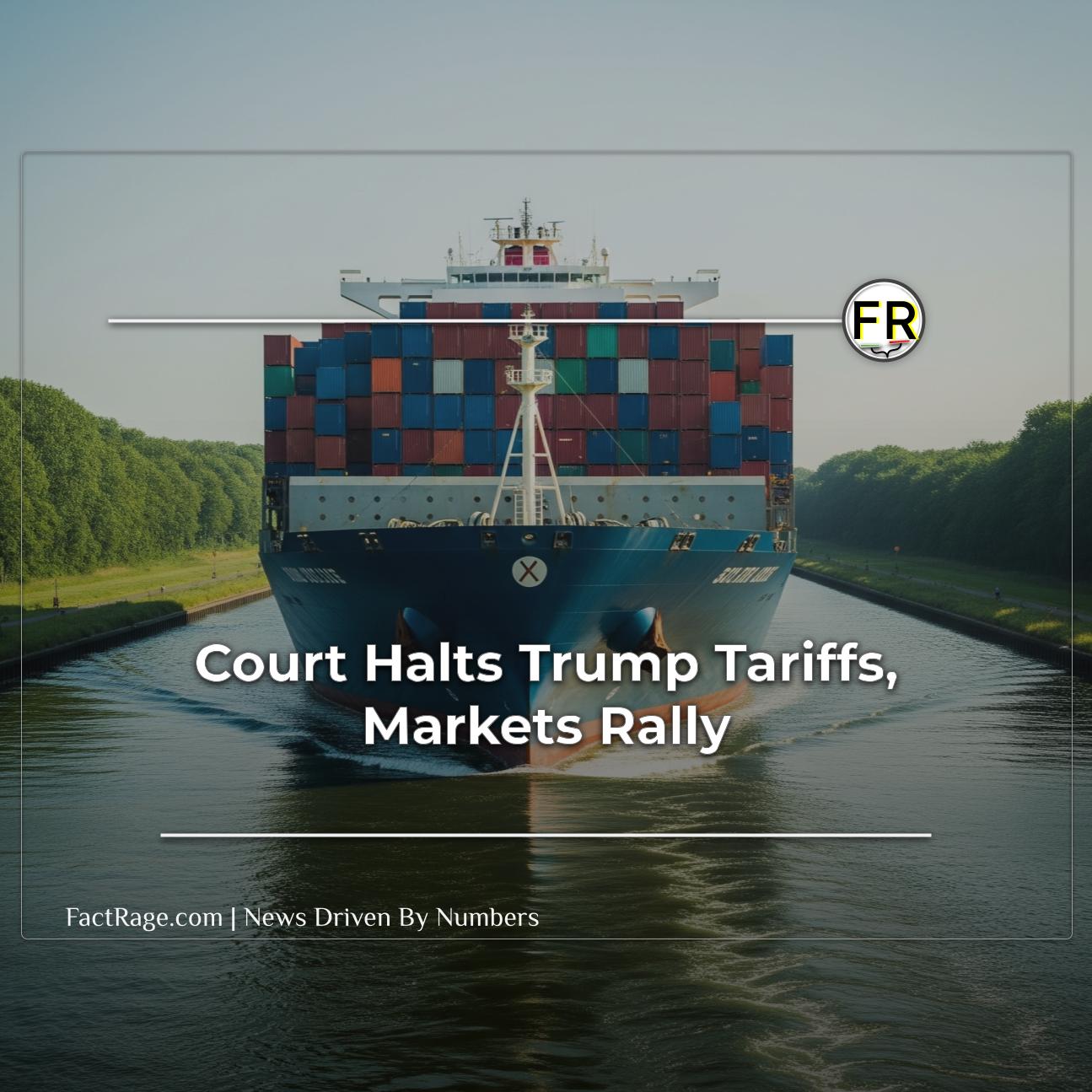NATIONWIDE – A federal court has delivered a significant blow to President Donald Trump’s trade policies, ruling that many of his broad tariffs exceeded presidential authority. The decision, which immediately halted the implementation of a new round of duties, prompted a notable positive reaction across global financial markets.
Key Facts:
- Tariffs Blocked: A U.S. federal court ruled against several of President Donald Trump’s tariffs, including sweeping global tariffs and specific levies on imports from China, Mexico, and Canada, asserting that they exceeded the President’s authority under the International Emergency Economic Powers Act (IEEPA).
- Constitutional Authority: The Court of International Trade emphasized that the U.S. Constitution grants Congress, not the President, exclusive power to regulate commerce with foreign nations.
- Market Surge: Following the court’s decision, U.S. stock futures surged, the dollar strengthened against safe-haven currencies, and Asian markets saw gains, indicating investor relief and a potential reduction in trade-related uncertainty.
This legal setback challenges a central tenet of the former administration’s trade strategy, which has frequently relied on executive powers to impose tariffs. The ruling has immediate implications for businesses and consumers, while also setting the stage for a potential appeals process that could ultimately reach the Supreme Court.
Judicial Scrutiny of Executive Power

The U.S. Court of International Trade, based in Manhattan, found that the “Worldwide and Retaliatory Tariff Orders” went beyond the authority granted to the President by the IEEPA. This 1977 law, designed to give the President broad economic powers during a national emergency, had not been used to impose tariffs in such a sweeping manner before the Trump administration. The court’s three-judge panel explicitly stated that the IEEPA does not delegate “unbounded tariff authority” to the President, reinforcing the constitutional principle that Congress holds the power to regulate international commerce.
What does this ruling mean for future presidential actions on trade? The court’s decision suggests a narrowing of executive discretion when it comes to imposing tariffs, potentially requiring more direct Congressional approval for such measures.
Market’s Immediate Response
Global financial markets, which have experienced significant volatility due to trade disputes, reacted positively to the news. U.S. stock futures for the S&P 500 and Nasdaq 100 climbed significantly, reflecting investor optimism about a reduction in trade tensions. The U.S. dollar also gained against currencies like the Japanese Yen and Swiss Franc, traditionally seen as safe havens during periods of uncertainty.
Asian markets, including Japan’s Nikkei 225 and Australia’s ASX 200, also saw gains. Analysts widely interpreted the court’s decision as a removal of a significant “tactical risk” from the market, potentially paving the way for a more stable global trade environment.
The Road Ahead: Appeals and Uncertainty

The Trump administration has already announced its intention to appeal the ruling, which could lead to a lengthy legal battle that extends to the U.S. Court of Appeals for the Federal Circuit in Washington, D.C., and possibly the Supreme Court. While the immediate injunction halts the tariffs, the possibility of an emergency stay being granted during the appeal process means the situation remains fluid.
What impact will the appeal process have on market stability? The ongoing legal uncertainty could continue to influence investor sentiment, as the ultimate fate of the tariffs remains undecided. Businesses that rely on international trade will be closely watching these developments, as their supply chains and pricing strategies could be significantly affected by the final outcome. The ruling also raises questions about previously imposed tariffs that relied on similar legal justifications.












